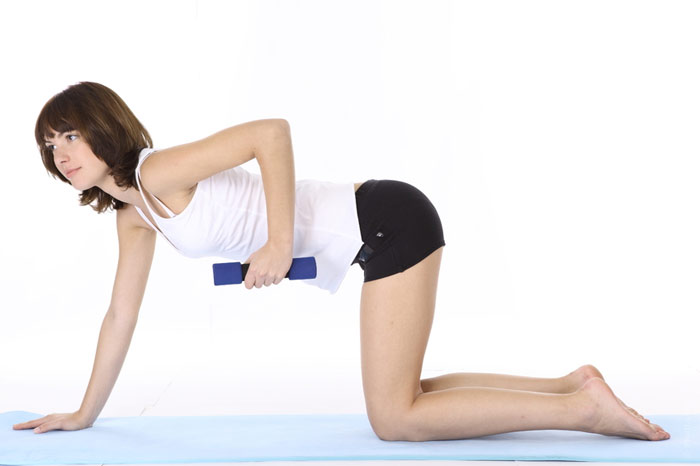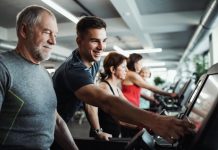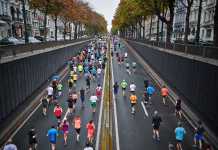Exercises are useful, but in some cases they can harm you. We offer you 9 tips on sports and fitness don’ts.

1. Don’t neglect the selection of sportswear and footwear
Clothes for sports should not include an old synthetic shirt that you do not care about and the shorts that were worn last year. Costumes for training, as well as shoes, must be purchased in a special shop, they should fit your size, season and the conditions in which you are training (at home, on the street, in the gym, etc.). In addition, they should be light and should not impede your movements. Experts do not recommend buying cotton sportswear: it absorbs sweat, sticks to the body and prevents the skin from breathing. It is better if your suit is sewn from the material that combines cotton, lycra, polyester, spandex, and nylon. This sportswear is not stretched, keeps the shape and is pleasant for the body.
2. Don’t exercise barefoot
It is advisable to overcome laziness and take appropriate shoes to the gym with you. Exercising barefoot, in socks or even flat-soled sneakers increases the load on the spine and has a negative impact on its condition. Such barefoot classes bring the greatest harm to those who suffer from diseases of blood vessels. If you do not have the proper footwear, your vessels will experience a double burden, which will negatively affect the course of the disease.
3. Don’t use an antiperspirant
While exercising, a person sweats heavily – it is the natural way for the body to get rid of toxins. Using an antiperspirant interferes with this process, which may adversely affect your health.
4. Don’t refuse to drink water
It is necessary to drink a lot while exercising. During active training, the body loses a lot of liquid, and you should periodically replenish it not to suffer from dehydration. Even if you do not have a strong thirst, it is worth making 2-3 sips of simple non-carbonated water at frequent intervals.
5. Don’t run on asphalt tracks
Hard asphalt does not absorb the shocks that arise when the runner’s feet push off the ground, which greatly enhances the load on the feet. And it leads to serious problems with the ankles, knees, hip joints and even waist. Therefore, if you cannot exercise in the stadium where the track has a special coating, it is better to move to a park where there are smooth earthen paths (with no bumps and pits).
6. Don’t run along roads
During the running exercise, respiration and metabolism are enhanced. If a runner breathes clean air, the body is cleansed and oxygenated. The air polluted with gases, on the contrary, is harmful for the body that works according to the “vacuum cleaner” principle while running.
7. Don’t go jogging in the morning
In contrast to the preceding paragraphs, this is probably not a ban, but a thing that is not recommended. In accordance with our biorhythms, it is most useful for people to run from 20 to 22 pm, about an hour after the last meal. After jogging, one should wait for 40 minutes before eating.
8. Don’t exercise in a state of fatigue
If people do not get enough sleep or are tired, exercises will not bring positive results. All that can be obtained in this case is the release of stress hormones in the blood.
9. Don’t talk, watch TV, or think about other things; don’t exercise in a bad mood
All this distracts the main controlling organ of the body – the brain – from training. It ceases to follow closely the work of the muscles and they begin to “malfunction.” The effect of such trainings will be minimal. Fitness instructors advise to clearly monitor your actions and feelings and establish a psychological contact with your body during the workout. Every coach or instructor can complement this basic stop-list with a dozen of his/her own laws and prohibitions. But there is only one golden rule: sport should bring benefit and good mood.










